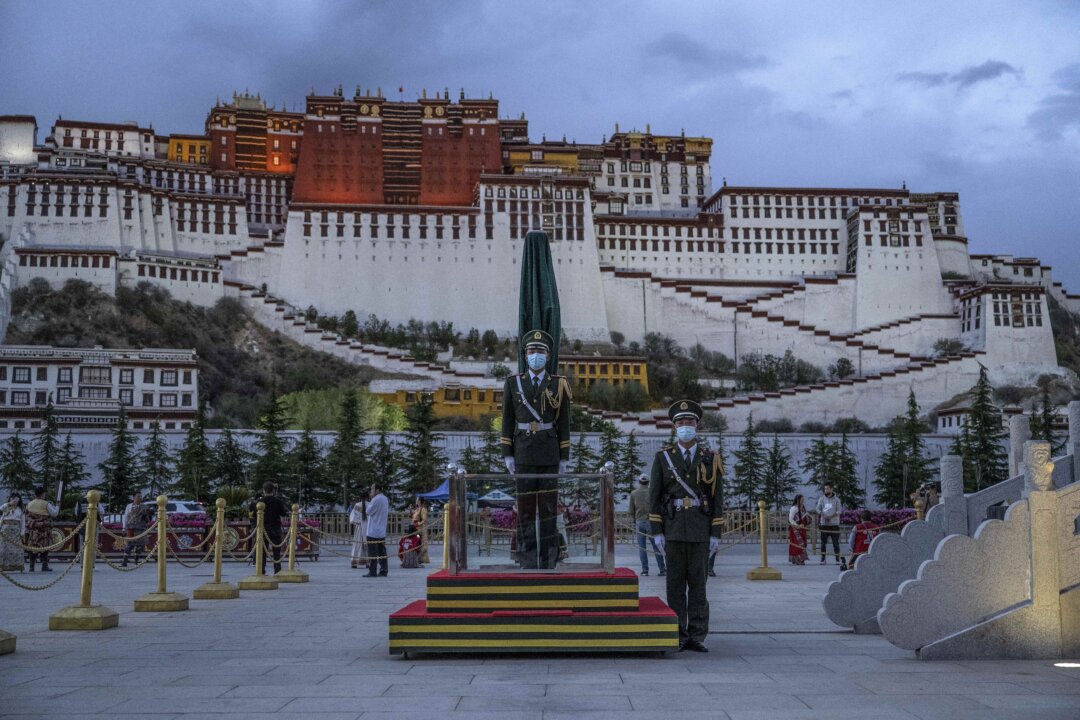The Chinese Communist Party (CCP) on Aug. 21 marked the 60th anniversary of its formal rule over Tibet with a call to reinforce its control over the region.
Standing in front of the heavily guarded Potala Palace in Lhasa, Tibet’s capital, senior CCP official Wang Huning emphasized the need for a vigorous fight against “separatism” to ensure border security.
“We must … strengthen and innovate social governance, and build a wall of copper and steel to safeguard stability,” Wang, China’s fourth-ranking official, told a handpicked audience.
The CCP overhauled Tibet’s political system and formally established the Tibet Autonomous Region in 1965. This came six years after the Chinese military suppressed a Tibetan uprising against communist rule in 1959, a crackdown widely believed to have resulted in the deaths of thousands of Tibetans. Thousands more, including the 14th Dalai Lama, fled into exile in India.
In the following decades, the regime tightened its control of the unique Buddhist region through a campaign that involved the demolition of monasteries and the imprisonment of monks and nuns.
Tens of thousands of Tibetans were sent to military-style vocational training centers, similar to those holding more than 1 million Uyghur Muslims in Xinjiang, according to United Nations human rights experts.
A May report by the US-based Tibet Action Institute found that Tibetan children, from as young as four years old, have been forced into colonial-style boarding schools, where they were taught simplified Chinese, as part of the regime’s efforts to eliminate Tibetan culture and language.
Wang was one of the senior Communist Party officials accompanying Chinese communist leader Xi Jinping, on his second visit to Tibet as China’s leader.

Upon his arrival in Lhasa on Aug. 20, Xi convened a meeting with the region’s top officials, ordering them to push Tibetans to use the Chinese language while tightening the governance of religious affairs.
“We must guide Tibetan Buddhism to adapt to socialist society,” Xi said, according to China’s state-run Xinhua news agency.
The International Campaign for Tibet (ICT), a Washington-based advocacy group, said the rare visits by Xi signaled Beijing’s lack of confidence in its rule over the region.
“This unprecedented and high-ranking delegation to Tibet on the 60th anniversary of the creation of a so-called Tibet Autonomous Region reflects China’s deep insecurity in Tibet and need to perform leadership and assert their authority in Tibet,” ICT President Tencho Gyatso said in a statement.
“Tibet remains the constant reminder to the world that China offers a dysfunctional, immoral and fragile governance model that rules by fear.”

